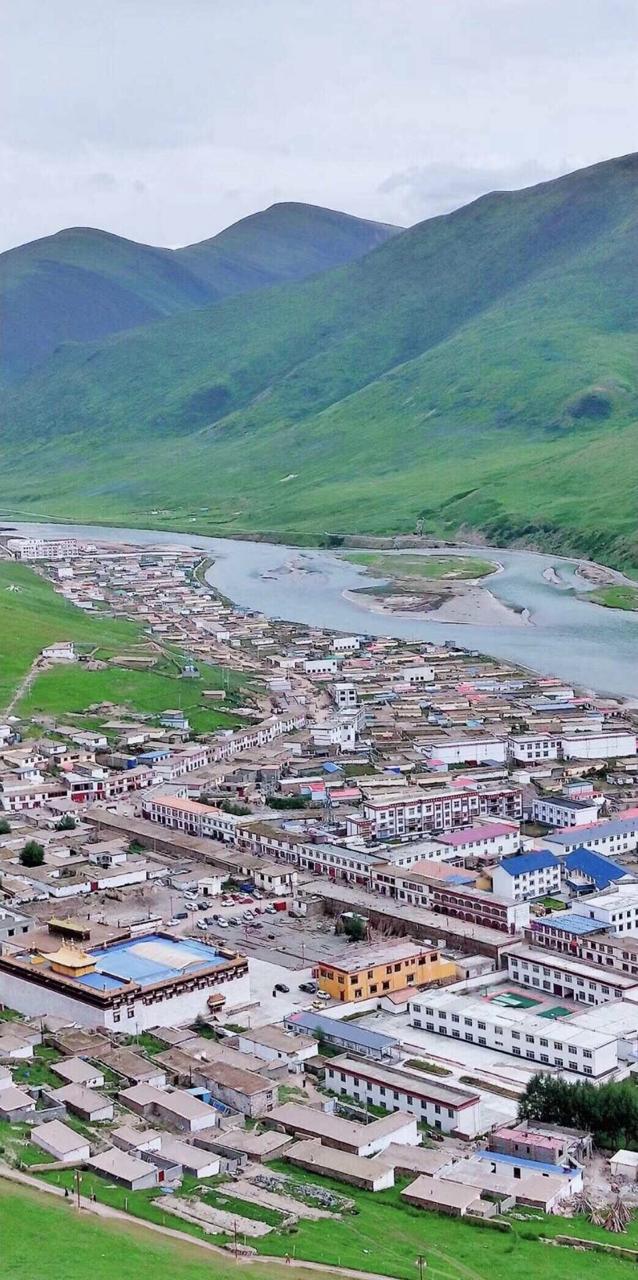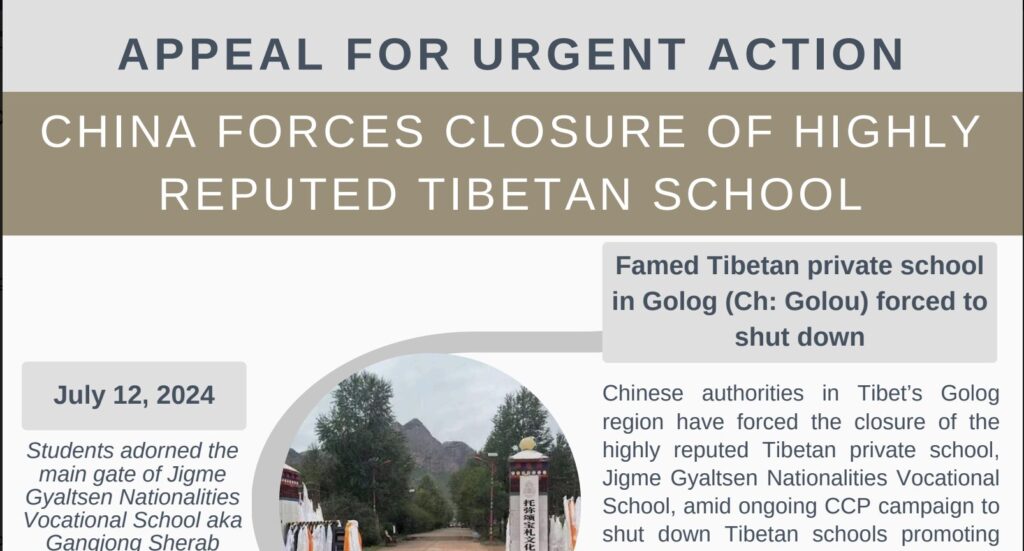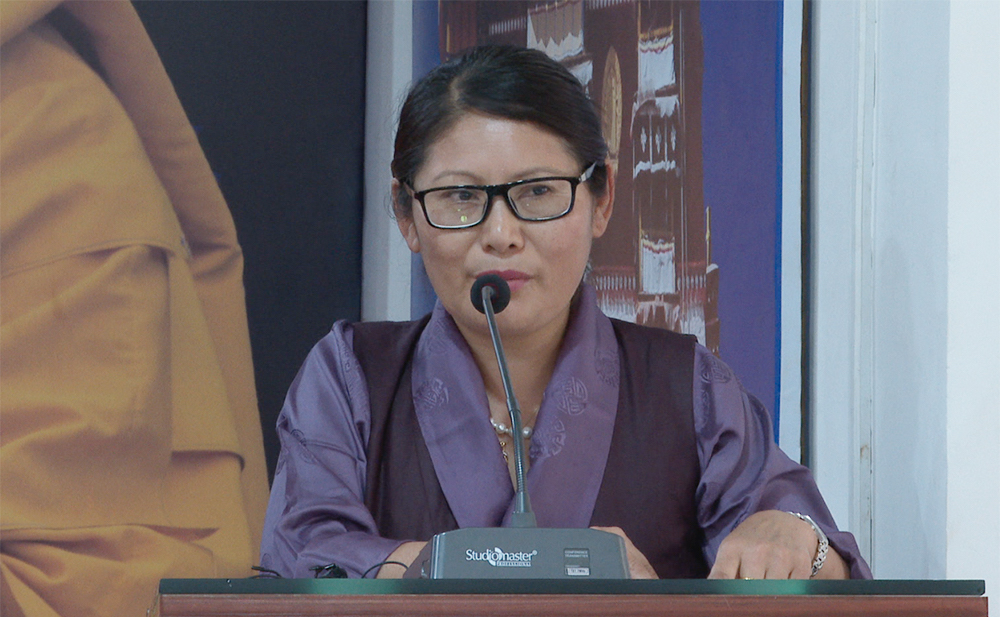
An undated image of Dza Wonpo town, Sershul county in Tibet’s Karze (Ch: Ganzi Tibetan Autonomous Prefecture).
Dharamshala: A large number of Chinese forces have arrived in Dza Wonpo town, Sershul county in Tibet’s Karze (Ch: Ganzi Tibetan Autonomous Prefecture) in the aftermath of the recent protests last week. Scores of security forces from Sershul county arrived in a large convoy and have swarmed the streets of the township of Dza Mey (lower Dzachukha area). The armed security forces are patrolling the area that is now under constant and heightened surveillance.
Last week, on 21 November, two Tibetan youngsters, Choegyal and Yonten staged a protest in Dza Wonpo town calling for independence, human rights and freedom while they scattered hundreds of leaflets with message of Tibet’s independence in front of the local government office and police station in the area. “The two were immediately arrested and detained during which they were severely beaten by police for two days before they were taken to Sershul county on 23 November,” said our source citing contacts in the region.
Following the recent pro-independence demonstrations in Karze’s Dza Wonpo, which resulted in the arbitrary arrests of eight Tibetans, the Chinese authorities have put the Dza Mey area, including Dza Wonpo town, under severe restrictions and surveillance to keep a close watch on the activities of the local residents, shared our source. In addition to the multiple CC cameras and other surveillance technologies monitoring the residents, the Chinese police, “disguised as businessmen, beggars and ordinary people,” are making rounds to spy on the local Tibetans.
Due to the proximity of Dza Wonpo Monastery and the town-level authorities’ location, the intensified security measures in the area have affected the daily routines and livelihood of the Tibetans in the region. There are several towns under Dza Mey township namely: Wonpo, Trom-Dza, Arig-Dza, Washul, Troshul Upper (Tib: Gongma) and Troshul Lower (Tib: Ghapma).
Chinese Policy and the Degrading Nomadic Lives of Local Tibetans
The Tibetans in Dzachukha’s Wonpo town has traditionally led a nomadic livelihood. Each of its 1500-2000 households owned and reared large number of livestock, including yak, sheep, horses, etc. for their daily needs. However, the Chinese government’s policy of “resettling” or “relocating” the Tibetan nomads which continue to date have had a massive adverse impact on their livelihood. “In the last decade, almost complete disappearance of sheep is seen while the number of other livestock has decreased dramatically,” stated the source.
The Chinese authorities claim of investments and development in the region and that they gave houses and subsidies to the “resettled” nomads but in reality, most of these benefits don’t even reach down to the local Tibetans. According to our source, local Chinese authorities order the Tibetans to appear in “good dresses” and borrow things from others that they don’t have as a show. The local authorities will then take photos and videos of these Tibetans to prove how well-off and happy the residents are living because of the Chinese government. The houses allocated to the “relocated” nomads come with their own restrictive conditions such as banning the display of His Holiness the Dalai Lamas portraits and instead forced the display of pictures of Chinese leaders. The local authorities would warn the Tibetans of subsidy benefits cut and even detention if they don’t comply. These kinds of practices and policies implemented against the Tibetans are the main reasons for the tension, discontentment and disappointment in the community, leading to these protests against Chinese authority.
Prior to the 21 November arrest, two other incidents of Tibetans monks arrested by Chinese authorities were reported: a teenage monk from Dza Wonpo Gaden Shedrup Monastery called Nyimey, the younger brother of Choegyal, on 18 November, and Kunsal (20), Tamey, Soetra and Tsultrim (all three around 18) along with their religious teacher Shergyam on 7 November after pro-independence leaflets were found in the courtyard of the Chinese government office. More details on the news can be found in our earlier report here.
-Filed by UN, EU & Human Rights Desk, DIIR





